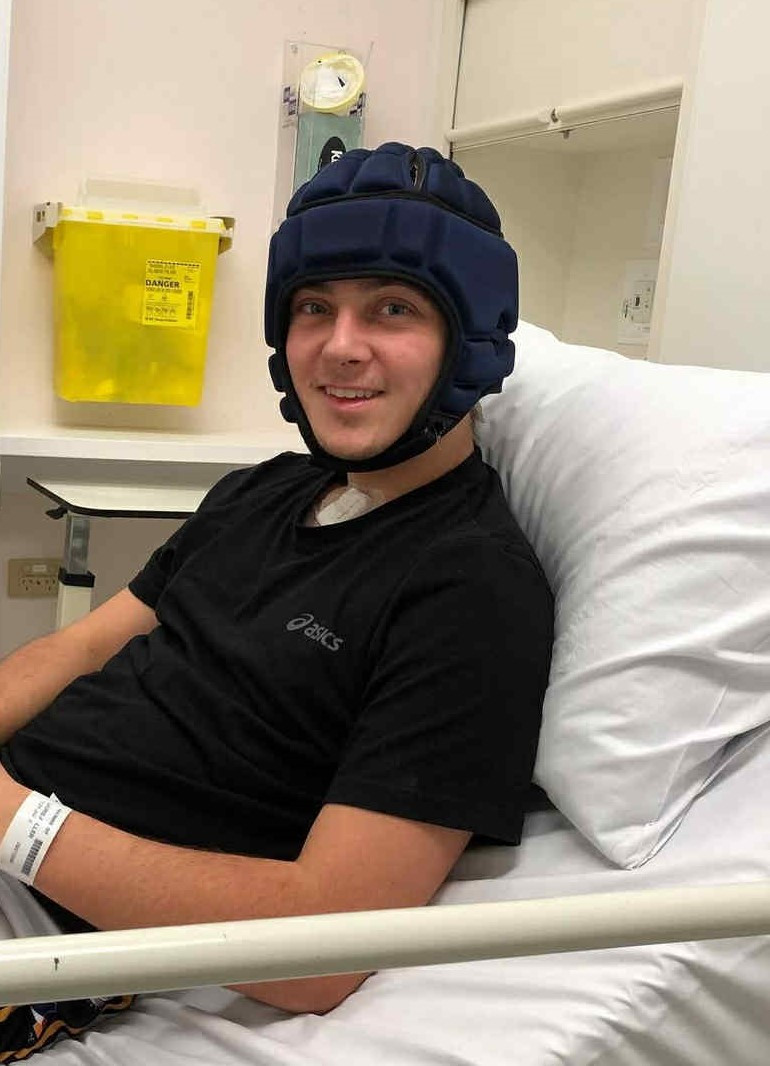International Day of People with Disability 2025
This International Day of People with Disability, we honour the resilience, courage, and determination of people living with disability.
.png)
International Day of People with Disability
This International Day of People with Disability, we honour the resilience, courage, and determination of people living with disability. Today, we share the inspiring stories of two individuals who have navigated life-changing traumatic brain injuries (TBI) and are now helping others in their communities.
Donate & Learn More
Your support helps fund life-changing research, provide resources for rehabilitation, and build communities for people living with brain injuries.
Donate to support brain injury research
Learn more about the research we’re funding
Lauren’s Story
In 2018, Lauren’s life changed instantly when she suffered a traumatic brain injury after an accidental fall while helping a student down from a piece of play equipment.
“One of the first things I noticed as soon as I hit the ground was that my vision went. I was seeing double, it was blurry, and I had shooting pain down my neck and spine.”
Her recovery was long and challenging. For the first year, Lauren struggled with daily tasks, work, and her independence. With the support of her GP, specialists, and rehabilitation team, she gradually regained her abilities through trial, error, and persistence.
“The initial stages of brain injury recovery is just failing at everything… you just have to go through a lot of failure before you can find a successful way.”
Lauren’s experience inspired her to create The Orange Butterfly, a blog and community supporting those with brain injuries. She also hosts Butterfly Hour, a monthly meet-up at the Adelaide Botanic Gardens to promote connection, mental health, and well-being.
“When you don’t meet anybody or find anybody that’s going through the same things that you are, you don’t know if it’s normal… It helped me just as much as my blog was helping other people.”
Today, Lauren continues to mentor others, volunteer, and deliver disability inclusion training. Her story highlights the importance of support, connection, and patience in the recovery journey.
Visit The Orange Butterfly
Tyler’s Story
Tyler Fuller was just 19 when he suffered a traumatic brain injury after a fall on the rocks at Middleton on New Year’s Day 2020. He underwent life-saving surgery, including a Decompressive Craniectomy, and was in a coma for 19 days.
“While I have these impairments, I feel pretty much the same as I was before my accident. I am also looking forward to assisting others with brain injuries and supporting the organisations who assist brain injured people with their recovery and rehabilitation.”
Tyler’s rehabilitation journey included multiple hospital stays, specialist care, and online rehab sessions due to COVID-19. Through perseverance, he regained his independence and is now committed to raising awareness and supporting brain injury research.
“My biggest piece of advice would be to not give up with their rehab, recovery, goals, and dreams… This injury is a life-changing injury, but your reaction to the injury is up to you.”
Tyler is currently fundraising for the NRF to support research into traumatic brain injuries and brain swelling.
Watch Tyler's interview with Channel 7
Support Tyler's appeal for TBI research funding in SA

How Your Support Drives Impactful Research
Thanks to the generosity of donors, important research is being funded to improve outcomes for people living with traumatic brain injury (TBI). Did you know that your support through the NRF facilitates the clinical neurotrauma research program at the Royal Adelaide Hospital, accelerating vital research and facilitating several ongoing clinical trials into TBI management including FIND-TBI and ROTEM-TBI.
Your support funds these crucial projects, helping tranlate research into real-world improvements for people living with brain injuries.





